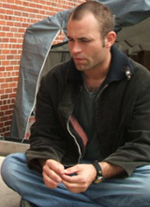A well-known Austin activist and co-founder of Common Ground Relief in New Orleans admitted this week to working with the Federal Bureau of Investigation (FBI).

“The simple truth is that I have chosen to work with the Federal Bureau of investigation [sic],” said Brandon Michael Darby in an open letter to friends he’s organized with since 2002.
Darby not only worked with anti-war and justice groups in Austin and Houston, but also worked as a community organizer in New Orleans in the aftermath of Hurricane Katrina. He co-founded Common Ground Relief a reconstruction and relief effort that brought together thousands of activists and volunteers using horizontal organizing principles for climate justice.
He infiltrated the “Austin Affinity Group” that organized around the Republican National Convention in Sept. His letter states he disagreed with the tactics of some of it’s members. Two of the members, David Guy McKay and Bradley Neal Crowder, are currently awaiting trial for the manufacture of a molotov cocktail. The information that led to their arrest came from “CHS 1” – confidential human source 1.
Activists have identified CHS 1 as Darby.
Darby’s friends and colleagues initially defended him, but when additional information surfaced they confronted him.
“I don’t feel like I lost my credibility,” says longtime Austin-based activist Scott Crow. “But I staked my credibility defending him, and people backed me up.” Now that Darby has gone public, Crow is ready to go on the offensive.
“While it is not yet clear how long or to what extent Darby has been acting as an informant, the emerging truth about Darby’s malicious involvement in our communities is heart-breaking and utterly ground-shattering to some of us who were closest to him,” says Crow, who in 2005 co-founded Common Ground Relief with Darby.
Based on the evidence, Darby has been giving the state information since at least November 2007, but there is also information that suggests his informant activities may go back further, at least to 2006 or earlier.
In the documents, Darby makes numerous remarks that are inflammatory and often untrue or grossly taken out of context. There is also compelling evidence to suggest that Darby, more than just reporting on Crowder and McKay’s activities, was actively encouraging, enabling, and provoking the two men to take illegal action.
[This blog is based on the reporting of Renee Feltz, a fellow at the Toni Stabile Center for Investigative Journalism and an intern with the investigative unit at The New York Times.]